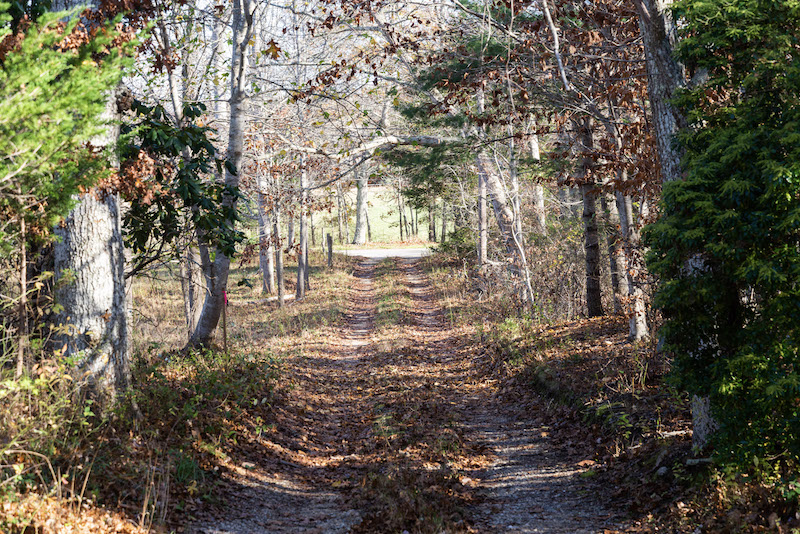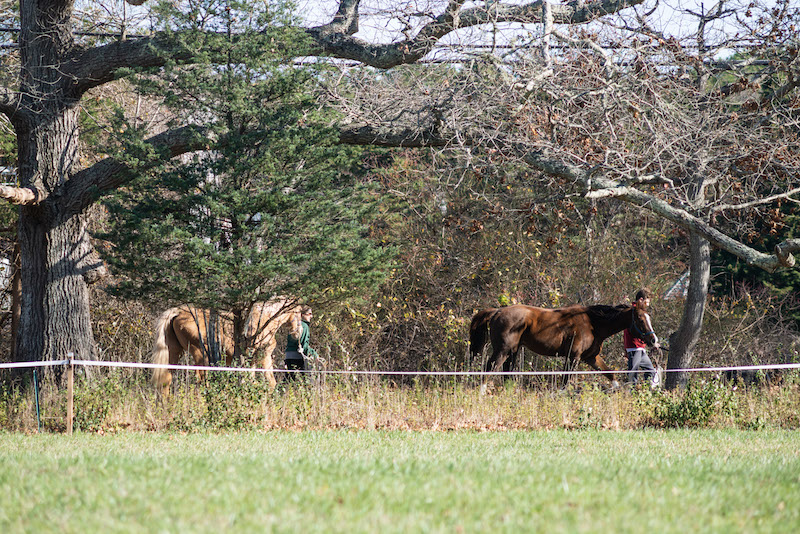The Island Autism Group and the Martha’s Vineyard Land Bank have teamed up to purchase a 17.5-acre former farm on Lambert’s Cove Road in West Tisbury for $1.2 million.
On Monday, the land bank bought 10 acres of the former Child family property for $400,000, while the Island Autism Group paid $800,000 for the other 7.5 acres, with plans for the Island Housing Trust to develop residences on three acres.
“There’s a huge shortage of housing for people on the autism spectrum, particularly people who have severe autism,” said Kate DeVane, president and co-founder of the Island Autism Group.
“Most people who are 22 and up and have autism are living in their parents’ houses,” Ms. DeVane said. “It’s kind of a perennial problem.”
In addition to staffed housing for more than a dozen adults, the autism group has plans for a small farm, with a live-in manager, and a center for both residential dining and day programs serving all ages.
“We’re calling it Hub House,” Ms. DeVane said. “It’s going to be a fabulous community hub for people with autism, and also shared out with the general public.”
The farm purchase was funded by donations, Ms. DeVane said, including major support from seasonal Edgartown residents Joan and Ed Doherty and Jim and Susan Swartz, the Edwards Harris Family Trust and the Washington, D.C.-based Wyss Foundation.
Land bank executive director James Lengyel said the joint purchase with the autism group is the latest of many such deals, termed cooperative acquisitions, in which the land bank has partnered with one or more other parties to buy, then divide Island property.
Ms. DeVane credited real estate broker Russell Maloney with suggesting the co-purchase.
“He . . . suggested the property and helped to brainstorm the partnership,” she said. “But the true heroes are the Child family.”
Mr. Lengyel said for the land bank, one of the most appealing aspects of the purchase partnership was the autism group’s focus on agriculture as a core activity.
“The idea that this entity is going to go out of its way to make a fully functioning farm there is very exciting,” he said.
Outside a three-acre building envelope, the autism group’s new property is protected by an agricultural preservation restriction and will be restricted to agricultural use, Mr. Lengyel said. While farm buildings are permitted, the land bank holds the right to review any new construction to make sure it is sited properly.
“The land bank takes farming very seriously, but it also takes scenic vistas very seriously,” Mr. Lengyel said.
The 10 acres now owned by the land bank will see the extension of an existing trail that now follows the northern boundary of the property under a previous easement, he said.
“The land bank will make a complete loop trail so people can walk around the whole of the property, including the farm,” Mr. Lengyel said.
“It’s a nice wooded property with a very nice rise in the back, and I think people will enjoy it.”
Ms. DeVane said at the newly planned Hub House, some of the farm’s autistic residents may have day jobs in the community.
“Maybe all their connection to the farm is [that] they may collect eggs in the morning and come have breakfast at the Hub House before they go to their jobs,” she said.
Residents who need more support may meet with job coaches or do supervised work with the farm animals, Ms. DeVane said. School children will come to the farm in the afternoons.
“We think that there are probably about 200 people on the Island currently who would benefit from our programming,” she said.
Provisionally dubbed the Island Autism Center and Neighborhood, the farm represents a long-sought dream for the autism group, which Ms. DeVane co-founded with Marcy Bettencourt 14 years ago when each woman had an autistic toddler.
“We really started out as a support system for the schools,” Ms. DeVane said. “But what we were really trying to do was create a support for not only the teachers, but the caregiver and everybody who works with people with autism, and the people with autism as well.”
As their children grew, so did their aspirations, Ms. DeVane said.
“We set up an after-school program and a summer program, with a section for kids in elementary school and another section for high school kids.”
But children with special needs are only eligible for school services until they turn 22, and the number of autistic Island adults is continually growing, Ms. Devane said.
“One in 45 kids on the Island has autism or autism-related disorders,” she said. Nationwide, according to the national Centers for Disease Control and Prevention, the rate in 2016 was one in 54 8-year-olds.
“The thing that’s tricky with this group is that it’s not a huge number of people, but it’s a non-refreshing number of people,” Ms. DeVane said. “There’s a constant influx of kids.”









Comments (14)
Comments
Comment policy »